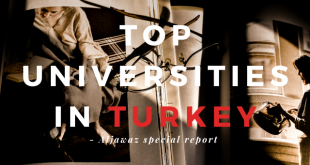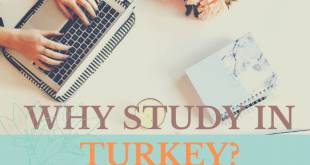As you contemplate your next academic endeavor, Turkey stands out as a popular destination, where rich history, vibrant culture, and quality education converge. Turkish higher education is a bridge between the East and the West. However, navigating the intricacies of university applications can be overwhelming. That’s where we come in. From navigating the application process to discovering vibrant campus life, we’ve got you covered every step of the way. So, let’s dive in!

Please note that the methods to apply to universities in Turkey differ from one to another. However, there are several common conditions to meet to apply to university in Turkey.
Among the most important ones is your high school certificate.
Table of Contents
Turkish Universities Entrance Exams
High Scool and SAT
Generally, the more you score in your high school diploma, the more your chances of acceptance in a university in Turkey.
Also, the SAT exam, which is an American-based exam like in your general secondary school. The SAT exam has recognition worldwide, not just in Turkey.
SAT is based on the American curriculum and is taught in English. Most students who speak English fluently like to take SAT as it is easy for them. You can study the SAT curriculum in Turkey and there are several institutes that teach this curriculum.
Learn more about student accommodation and working in Turkey here.
YÖS Entrance Exam
Some universities have their own entrance exam called YÖS. Students who choose to enroll them need to get a YÖS certificate next to their high school diploma.
Each university has its own conditions and dates. However, the starting date is usually from March and ends around July.
We advise that you pass the test with good marks!
The good thing about this exam is that it gives students who did not ore high marks back in their diploma high school a good chance of being accepted.
Applying to a Turkish University
The universities that demand the YÖS exam give preference to students applying for the exam. Your high school marks don’t matter if you score more or better in your YÖS certificate.
Similarly, some universities accept a high school diploma without the YÖS exam. Although, YÖS has preferences in universities like Anatolia University.
Not to mention, there are universities which do not accept the YÖS certificate and accept high levels of high school diploma instead, like Gaziantep University.
The University of Mersin, for example, accept YÖS next to Istanbul University. Also, they accept high school diplomas!
So make sure you consult the website of the university to check their requirement. Learn more about applying to a university here.
Universities in Turkey and YÖS exam
YÖS is based on the mathematics curriculum in the form of 35 questions. Also, intelligence questions in the form of 45 questions, and engineering in 5 questions.
The good thing about YÖS exam is that it is easy for anyone who has already passed a high school diploma in science, however, it may be difficult for literary students.
Don’t forget that YÖS has a limited time to complete. For example, you have 80 questions and the test duration is 90 minutes. So, students need to solve some questions fast!
Check out scholarships and top universities in Turkey.
Some universities may add more time than the standard 90 minutes, and some reduce the number of questions. Also, there are one or two universities that add 10 physics questions, 5 in chemistry and 5 in sciences.
Talking about the difficulty of the questions, from one university to another, the YÖS is different. For example, YÖS Istanbul is an academic and all of its questions are from the Metropolitan Curriculum.
According to some polls, you can pass the YÖS test easily because you can always take it again.
NOTE: Tenth, eleventh, and baccalaureate grades questions usually come in the YÖS test. Besides the main fundamentals from lower grades. The questions are relatively easy, so don’t worry!
University tuition in Turkey
The tuition varies depending on the university level and major. Usually paid in two installments per year, approximately $500 to $3.000 every year.
Documents to apply to university in Turkey
Generally, to apply to Turkish universities, you need:
- A copy of your passport next to a passport photo,
- Your high school diploma (translated into English and approved from the Ministry of Education and the Interior).
- A medical report proving you are healthy and free from infectious diseases, intellectual disabilities, etc.
- Your visa.
Once all your documents are in order, you can submit your application. Whether you apply to university online or via mail, you still have to send the paperwork by post. Moreover, if you need to go through an entrance exam or an interview, you will have to travel to Turkey.
The university will send along with your acceptance letter the next steps to take with your university application. As for the university application deadlines in Turkey, international students will have to get their paperwork done before mid-August if they apply for a bachelor’s degree. If applying for a master’s and PhD, you have to get your university application done by mid-September.
Conclusion
The curriculum is somewhat easy to follow. Not to mention, many literary students score strongly next to science students. Think of it like this, you have 35 math questions out of 80 questions, the rest of which are IQ tests that depend on intuitive speed and exercises.
SAT has a strong advantage in universities that teach in English, including the Bosphorus University, Marmara University in Istanbul, and (METU) the Middle East Technical University. Also, the University of Ankara.




 Aljawaz Your guide to study abroad
Aljawaz Your guide to study abroad





